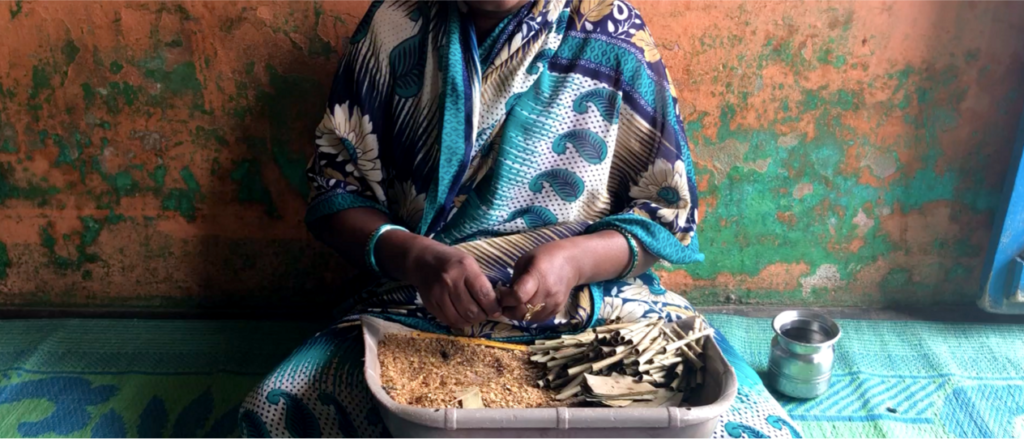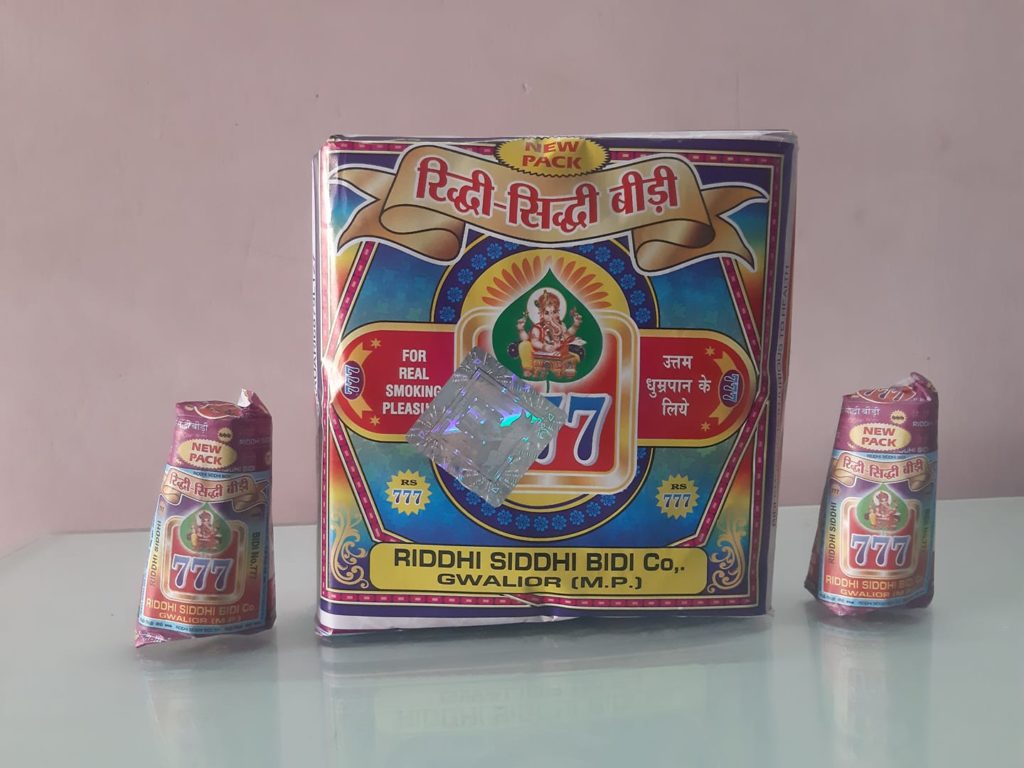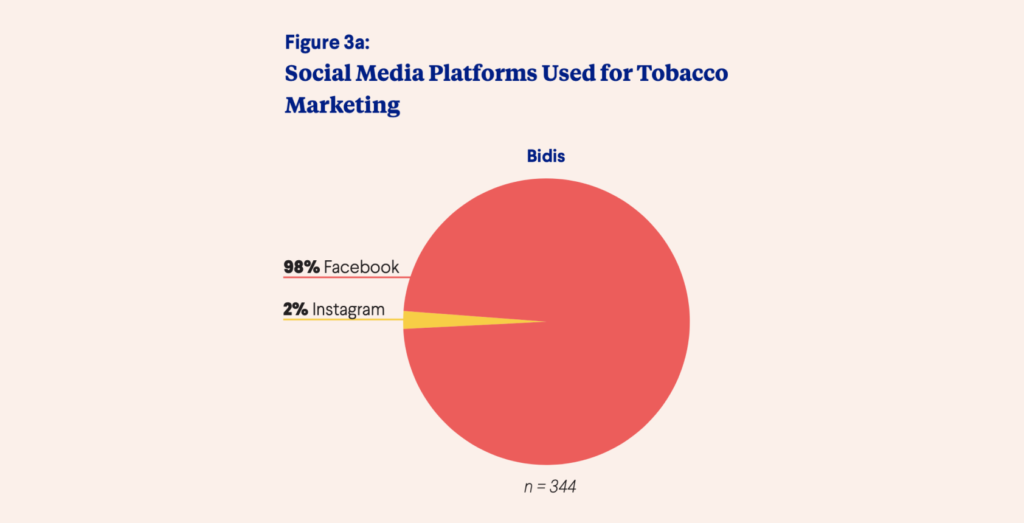Of the 267 million tobacco users in India, nearly 72 million adults smoke bidis hand-rolled cigarettes made of tobacco wrapped in tendu leaves making it the most widely used tobacco product in the country. Bidis outsell cigarettes in India by 8-to-1. India’s homegrown bidi industry is notoriously unregulated and has been extending its reach and targeting potential consumers in another space often lacking in oversight: social media.
While all tobacco products are marketed on the internet where restrictions are more difficult to enforce, the marketing strategies used for each product vary. Today, Vital Strategies released a new study, Selling Death on Social Media: How Bidis Are Reaching Consumers Online, which explores the marketing strategies used by bidi companies and how and through which social media platforms bidis are marketed to consumers.
Get Our Latest Public Health News
Join our email list and be the first to know about our public health news, publications and interviews with experts.
To learn more about the role of marketing in bidi use we sat down with Vital Strategies’ Sharan Kuganesan, Program Manager for the Global Tobacco Control and STOP programs and Namrata Kumar, Research Associate.

What are Bidis? Why are they a threat to public health?
Sharan: Bidis are cheap hand-rolled cigarettes made of tobacco and wrapped in tendu leaves. They are easily accessible across rural and urban areas, in fact 47% of tobacco users in India smoked their first bidi before their 10th birthday. Bidi smoke delivers more tar, carbon monoxide and nicotine than regular cigarettes and severely increases the risk for several cancers, coronary heart disease and heart attacks. In India alone, tobacco-related illnesses claim nearly a million lives.
Because the bidi industry is unregulated, with little government oversight compared to the cigarette industry, bidi companies get away with not providing health benefits to its workers and selling its products without clear health warnings; oftentimes attracting and targeting low-income consumers. Moreover, women and children make up 90% of the bidi workforce, and suffer through long hours in toxic work environments, for low wages and exasperated health risks including aggravated tuberculosis and asthma.

How are bidis being marketed? What messages are being used?
Namrata: Our research found that bidis are marketed online openly and directly on Facebook (98%). Interestingly, India’s rural community has grown to nearly 300 million active Internet users in the last two years, making Facebook users a prime target market. Most bidi companies’ Facebook pages found in our data collection were listed as a “retail store,” with a WhatsApp number to call or text, images of their products, demonstrating that many of these companies appear to be utilizing Facebook pages to facilitate sales. In terms of messaging, bidi marketing was often tied to entertainment and to religious holidays; some companies even went so far as to feature Hindu religious figures on their packaging. Most bidi marketing images were entirely visual with no text, a strategy often used to appeal to populations with lower literacy levels.

Why is bidi marketing different from the marketing of other tobacco products?
Sharan: In contrast to bidis, other smoking and smokeless tobacco products are marketed indirectly, across Facebook, Instagram, and YouTube, allowing these products to reach a more diverse audience. Indirect marketing often functions to create brand recall and normalize certain tobacco companies in the minds of consumers. Most importantly, indirect marketing allows tobacco companies to advertise through circumventing the many laws against tobacco advertising in India. Operating in an unregulated space, bidi companies have the luxury to market products directly, knowing that they receive less scrutiny and face fewer repercussions for not adhering to the same regulations that restrict the marketing of other tobacco products. This is concerning because exposure to bidi marketing leads to an increased likelihood of use among new and current consumers, including youth.
How did you gather this evidence? Can you tell me more about your research process?
Namrata: In June 2019, we launched TERM, which uses a social media listening tool to regularly monitor online tobacco marketing on social media. We scanned publicly available data on Facebook, Instagram, Twitter, YouTube, and other platforms, from December 2020 to August 2021. Specifically, we identified marketing instances through looking at bidi related key words, brand names, advertisements, and evidence of retail shops, in Hindi or English. Social media posts depicting bidi marketing were then manually analyzed, and categorized into appropriate groups for type of marketing, type of message, what platform it was on, and which state the post was made in. The data and findings are now shared in the newly published brief: Selling Death on Social Media: How Bidis Are Reaching Consumers Online.
How can India and other countries address bidi marketing online?
Sharan: Consistent tobacco industry interference and the emergence of new products and old industry tactics means that countries like India have a difficult battle in front of them. For one, we need to hold social media companies accountable and encourage them to stand by the policies they put in place to prevent the marketing and selling of tobacco products, especially to youth.
Namrata: It is pivotal for homegrown and emerging tobacco products to be regularly monitored for harmful marketing practices, both online and offline. We need to build better accountability mechanisms that ban the marketing and sales of tobacco products online. Along with a strict monitoring, surveillance, and reporting mechanism, the public needs to be educated on recognizing harmful marketing tactics.
Read our new brief to learn more about bidi marketing on social media.
For more information about Vital Strategies’ work in tobacco control, please visit: https://vitalstrategies.org/programs/tobacco-control
Follow us on Twitter: @VitalStrat